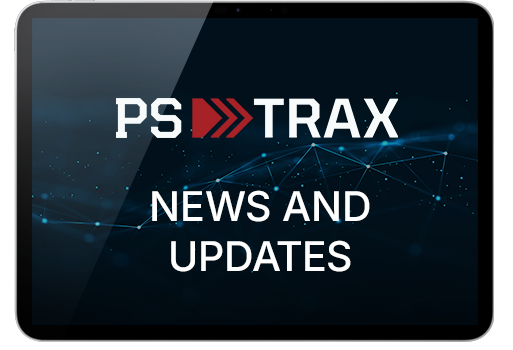5 Things to Ask Before Buying an Operations Management System
“I love paperwork and spreadsheets!” said no fire chief ever.
The truth is that few (if any) first responders enjoy the operations side of managing a firehouse. It takes a lot of time and effort to properly log incidents, maintain firehouse scheduling, stay on top of continuing education, and more.
An Operations Management System is an effective way to help leaders in the firehouse manage things. But with so many options for fire department reporting software, how do you choose the right system?
Here are some things we recommend as you consider which Operations Management System is best for your department:
What are you trying to solve?
First, it’s important to identify the reasons why you need an Operations Management System. Ask questions like, what pain points are we trying to solve? Which checklists and processes will the system automate? How does this system align with our agency’s goals?
Then write down those requirements and prioritize them, so that you have a clear goal as you go forward. It will help you with what questions to ask as you vet which system will best meet your needs.
Documenting your pain points helps to justify the “business case” of purchasing your new system to any final decision makers. Your Fire Chief, City Administrators, or other city partners will appreciate knowing how and why you’d like to incorporate a solution within your organization. It will pay dividends when you calculate your return on investment.
Bottom Line: Going through demos and getting quotes can be monotonous. Understand what you need in order to be better prepared and ask the right questions.
What type of Records Management solution do you want?
Not all Operations Systems are created equal. There are lots of varieties in Fire RMS software selections, but in general there are two types of systems – basic and specialized. So what type of system should your agency get?
It’s important to remember that, just like first responders have a core competency (saving lives), so do software companies. Records Management Systems (RMS) specialize in fire department records management and incident reporting, offering modules to help solve other agency challenges. Training systems specialize in continuing education and certifications. Operations Management systems specialize in -you guessed it – operations management.
Maybe your agency has invested in an RMS that offers a variety of modules? Your intention is to use the included modules because they are a “one stop shop” solution. Consider if your needs lie outside of records management and incident reporting. When they are not the core competency of the company, we call these a basic solution. They are “cookie cutter” solutions that do not offer much for configurability or customization. Be careful they don’t fall short of your expectations and department needs.
When evaluating basic systems, it’s also important to ask how data is stored and how users login. Many times these add-on products are from acquisitions and may or may not be fully integrated with the main product.
For example, sometimes you may still be required to login to multiple systems, defeating the purpose of that “one-stop-shop”. Be sure to do your homework if you’re considering an operations tool that doubles as a RMS.
Specialized systems are built specifically for a need or a pain. They tend to be “standalone” systems. They can be used with any combination of other software and are configurable to your specification. These systems fall into the “best tool for the job” mentality and therefore offer a lot of flexibility or customization.
Bottom Line: Be careful before diving into the “one-stop-shop” basic system. Ask lots of questions and make sure that the system you choose has the right functionality and actually works for what you need.
How do you want to implement your new Fire RMS system?
There are so many questions which need to be considered in implementing fire and EMS software. First, do you have the time to implement a new system? If you have many projects to accomplish, it may be better to look at a system where the implementation is more hands-off.
Another thing to look at is who can lead the project. Do you have the resources (both with the time and expertise) to build it yourself?
Onboarding new fire department software can be a heavy lift and every company on-boards new customers differently. There are some, like PSTrax, that take most of the work off your plate and fully configure your system for you. Then there are others who will provide you with templates and spreadsheets, and advise on best practices to let you handle the setup from there.
It helps if you have had past experience in implementing systems like this. Not only do you know what to expect, but you have an idea of what your department can use compared to what they won’t. If you did buy a software program in the past and didn’t end up using it, ask yourself why.
Understanding what worked before and what did not can go a long way to ensuring that new implementations are well-received and your hard work and budget dollars are well spent.
This is also a good place to stop and work through what a reasonable implementation timeline looks like.
Do you have a hard deadline to implement? If you are in a rush, can the program be built in time? Depending on which way you go, implementation can take a long time, so keep that in mind as you set up goals and expectations.
Also, don’t forget to ask if there are additional costs associated with system builds. The last thing you need is to get budget approval for a new software license, only to find that there are more costs tacked on after have you begun.
Bottom Line: Find out what your part is in the transition to a new platform and what the best practices are from whom you are buying the system. It also doesn’t hurt to find out what a reasonable timeline is to establish progress points to keep your transition on track.
What type of support do you want?
Just like asking about what costs, if any, there are for on-boarding, you’ll want to get a preview into what the customer service and training processes look like. This is a very important thing to ask when buying an operations management system.
If you are a self-service person, ask if the company has a knowledge base or training page where you can find self-help yourself. If you prefer to talk directly to someone to get help, find out if the company has a dedicated person to assist you directly or if there is a robotic ticketing system in place where you submit a support ticket and wait for a call back.
Most importantly, find out what their average response time is for help calls. Some companies can take days or weeks to return a call.
This same question goes for on-going training in the weeks, months, and years following implementation. You’ll want to know what the software training process is like and if there is any help in adding new members, getting further training on anything later, and if there are any costs associated as your department evolves and changes.
Bottom Line: It’s important to understand how you and your team will get the support it needs and what that support looks like throughout your relationship with your software provider.
What type of company do you want to work with?
With so many players in the software industry, it’s easy to become overwhelmed and distracted by options. Sometimes it’s easy to narrow the field if you know what kind of organization you are looking at.
One big differentiator to consider is if the company is a privately held entity or a venture capital, where there is a board of directors and specific profit margins.
Privately held companies tend to be more stable throughout their lifetime. They don’t usually make such drastic changes of course as a venture capital, which can be volatile as ownership changes hands.
Even with all the due diligence and fact finding you could possibly do, sometimes things just don’t work out. That’s why we think it is a good idea to find out what your escape options are should you find out what you’ve purchased isn’t right for you.
Ask what happens if you aren’t satisfied with your purchase. Is there a trial period? Can you get your money back if you try it and don’t like it? How long are you committed to your purchase? All these questions matter, and should be asked before signing anything.
Bottom Line: Always know who you are working with and if there’s a way out if things turn sour. There’s nothing more awful than going through all the work to research and implement a new system, finding out it’s not going to work for you or that the company you chose is frustrating to work with, then being stuck with it for the long haul.
It doesn’t matter if you are a fulltime firefighter, volunteer first responder, an EMT, fire chief, or probie; researching first responder software solutions and finding the option right for you is neither easy nor fun.
It’s hard, thankless work, and can be frustrating and confusing. Thinking about what to ask when buying an operations management system before you dive into the process will help answer some of the most important questions to help you decide how to proceed forward, while giving you some confidence in asking these core questions.
Check out how competing fire department software compares to PSTrax.
If PSTrax can help you with operations checks and logistics management, we’d love to chat. Please check out our fire and EMS features, and software solutions, or contact us for a free demo today!
⏩ Read our 5-Star Reviews on Capterra
____________________________

Like what you read? Follow Liz on LinkedIn here. Want to know more about how PSTrax can help? Schedule a demo today!


